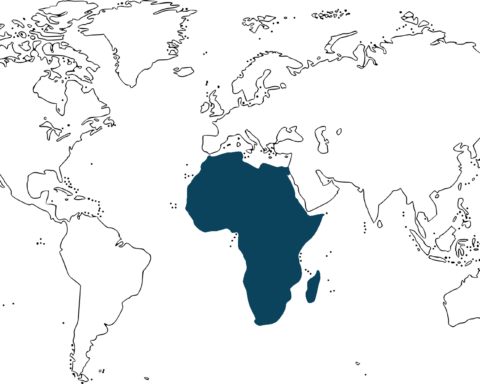Although the United States and United Kingdom have been back on the road to economic growth from some time, and enjoy low rates of unemployment, this is not the case of the eurozone. As Eurostat estimates, in 2014 the GDP rose in the eurozone by 0.9%, and unemployment was above 11%, and the rates in Southern Europe were much higher, in case of Greece and Spain the unemployment was way above 20%. Europe has been experiencing a lost decade, and the newest economic forecasts do not leave much doubt that the nearest future will bring any significant improvement of this situation. One could ask how is it possible that the eurozone is still copying with the economic crisis? The answer is very simple, this all happens because of a complete denial of the main source of the economic and social tragedy of Southern Europe. It is high time for European officials to admit that the single currency is responsible for the trap in which Europe found itself. The euro is too strong for southern Europe, and too weak for northern Europe. Italian, Spanish and even French companies are suffering greatly because their export is being damaged by an overvalued currency. The rapid pace of deindustrialization of southern Europe is also a direct consequence of the euro. The European Monetary Union’s “one-size-fits-all” monetary policy turned out to be an utter failure; the Spanish central bank was helpless when the real-estate bubble was bursting, as it couldn’t raise the interest rates.
Today, Southern European countries are struggling with a serious economic crisis, and cannot devalue to restore their lost competitiveness. After the introduction of the euro, a rapid increase in unit labour costs happened in Southern Europe which had not been accompanied by appropriate gains in productivity. As a result, the euro has been a strongly overvalued currency for Southern Europe. At the same time, the German surplus in 2014 was at historic heights and was equal to 7.5% of GDP, as informs the Ifo Institute. How is this possible? Well, the answer is again quite simple, the euro is a strongly undervalued currency for Germany which significantly boosts German exports.
Although the conventional wisdom holds that Germany benefits enormously because of this situation, it does not take into consideration the long-term effects of an undervalued currency. The other side of the coin is weakening the incentives for German companies to be more innovative and productive. And what is absolutely crucial in the long perspective is precisely productivity and the ability to innovate. The technological revolution is underway, and Germany which managed to achieve the status of the global industrial superpower in the times of the Second Industrial Revolution also thanks to the great achievements in science, is doing now a lot to lose its competitive advantage in the field of technology. Whereas the German government is pre-occupied with managing the EMU from crisis to crisis, the German educational system remains underinvested, as well as the whole public infrastructure.
The situation of Greece shows very well the tragic costs of the euro rescue policy. The unemployment figures are absolutely crushing, it is estimated that the employment in Greece is at 25%, and in the case of Greek youth the situation is even worse, as half of them are unemployed. The public debt at the level of 175% of GDP cannot be considered to be sustainable. If we add a dramatic fall in industrial output since the crisis in Greece started, then we have a clear picture of the Greek tragedy. The policy of austerity imposed on the Greeks never made sense and ended how it had to. It is a complete disaster because of a very simple reason, Greece as a member of the European Monetary Union cannot devalue. The fact the reflection in Europe focuses on the subjects of public debt and austerity, and does not address the real source of the problem, the euro, shows how deeply out of touch with reality is the mindset of European policy-makers.
Although the main attention of the world is devoted to Greece, the fate of the euro will be likely in the hands of French politicians. Paris needs to face up the same problems as the rest of Southern Europe, rapidly rising public debt, currently above 95% of GDP, combined with almost non-existent economic growth at 0,4 % of GDP in 2014, create a serious reason for concern. Brigitte Granville, the head of the Center for Globalization at the University of London, argues that France desperately needs deep structural reforms in order to improve the competitiveness of the French economy and reforming the French model will be impossible as long France stays in the European Monetary Union.
The symbol of the euro rescue policy has become the German government, as its main architect, and this created an anti-German backlash among the unemployed in Rome, Athens and Lisbon protesting against austerity. Even, the Franco-German relations have strongly deteriorated. In this way, the euro is tearing apart our European house. The continuous crisis paves the way to power for radical left parties for whom anti-globalization is at the heart of their identity. Globalization gets blamed for the sin of misalignment of the exchange rates within the eurozone; moreover, when the specter of radical anti-capitalist ideologies is again haunting the Old Continent proposing the old known failed prescriptions, India has a government which considers free-market reforms as a top priority for its agenda. In all likelihood, Europe will have to face up to competition on global markets with a country which population is more than twice of its own. And what is doing Europe to increase its competitiveness? Close to nothing.
It is commonly believed that the current problems are resulting from the lack of fiscal union, and the logic of defending the euro at all cost requires that this mistake should be now ‘fixed’. Yet, fiscal transfers have only a limited impact on improving competitiveness, so there are completely unable to solve the economic misery of southern Europe. Italy is the best example in this case. What is absolutely important as well, any transfer union poses a moral hazard, because it would mean more governmental irresponsibility in the eurozone, and, in all likelihood, would result in more debt and lower standard of living.
In this case, should France, Greece, Italy, Portugal and Spain leave the eurozone? Although this solution seems to be rational and desirable, it involves a serious risk of banking panic and the domino effect in southern Europe. However, at some point these countries might be forced to take the risk, if the only alternative would be a prolonging status quo. A far safer option for Southern Europe would be if the northern countries left the eurozone first. The exit of Austria, Finland, Germany and the Netherlands would weaken the euro for the countries which stayed, and such a weaker currency would help them to restore their competitiveness. The northern countries could then form a new currency, much better reflecting the economic realities. A new European central bank for this currency would have to be established, modeled after Bundesbank.
The whole operation would require debt reduction in some of the southern countries, and stabilization of banks at national level. Therefore, this strategy would be an expression of real solidarity among European nations, contrary to the current situation in which the German taxpayers are being asked to act as deep pockets of Europe, and the consecutive bailouts only uphold the illusions concerning the failed experiment of the currency union, and instead of helping Greeks only sentence them for longer suffering.
The euro has been a great mistake, but one which can be fixed. In order to escape from the trap of low growth, high public debt and massive unemployment in Europe, the euro needs to be dismantled. Western Europe’s economic decline, up to a big point, is a result of a self-imposed policy, and is at odds with the sound economic policy which laid down the foundations of its post-war success. With every day, the bill for the euro rescue policy is getting higher and higher. It is high time for European leaders to confront the facts.










